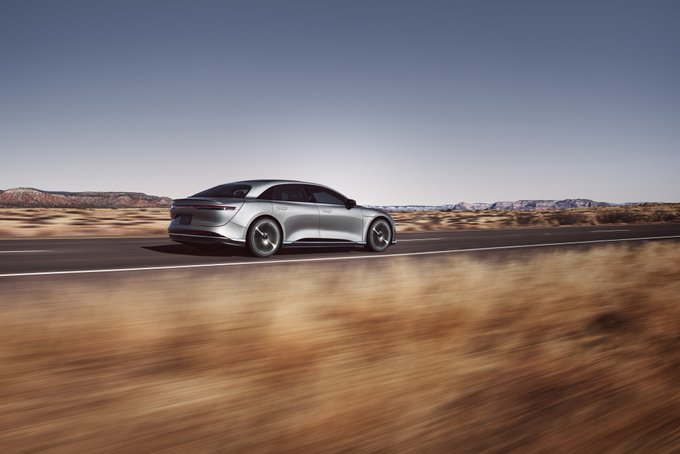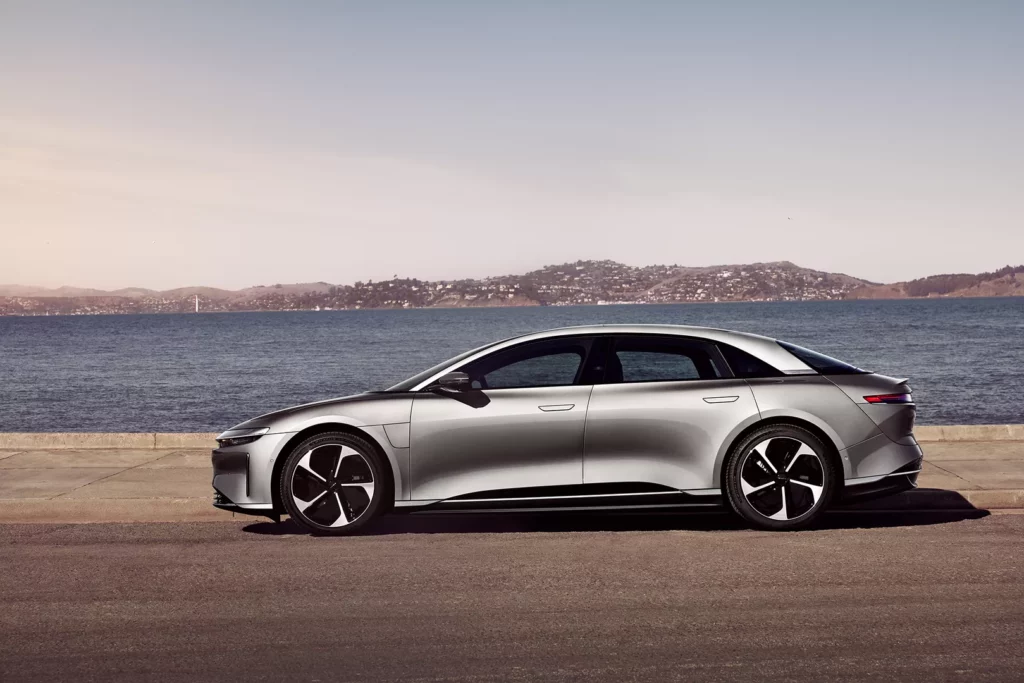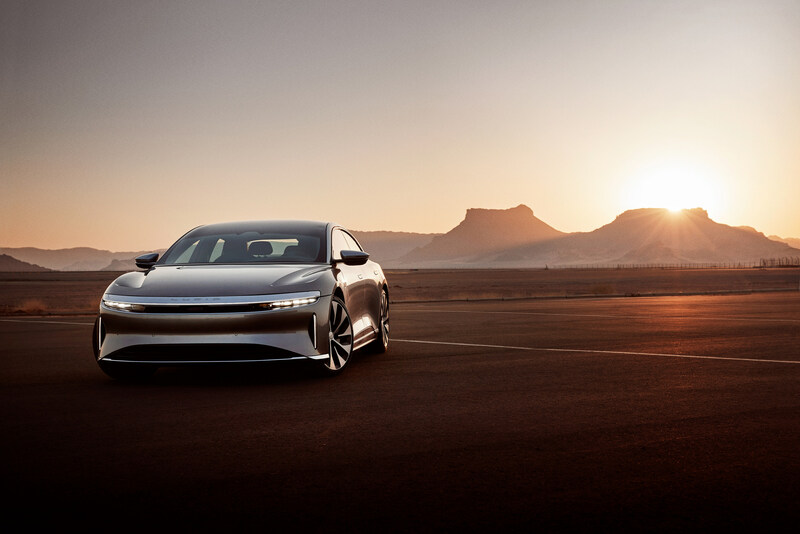
Lucid CEO on Tesla Connector Hype: ‘It’s Just a Plug’

Lucid Air Touring. Photo: Lucid Motors
Peter Rawlinson, CEO of electric vehicle maker Lucid Group Inc., has raised questions about the rush of automakers moving to adopt Tesla’s charging standards. This discussion follows decisions by General Motors Co. and Ford Motor Co. to transition to what Tesla has recently termed the North American Charging Standard, or NACS.
Despite his skepticism, Rawlinson, who was personally involved in the design of the NACS as the chief engineer of Tesla’s Model S, conceded that Tesla’s Supercharger network was more reliable than competitors. He didn’t rule out the possibility of Lucid adopting NACS in the future, but insisted it must be on the right terms, speaking to Bloomberg.
Rawlinson likened the industry debate over charging standards to a dispute over wine-bottle closures. “What we’re really comparing is, is it a screw cap or is it a cork on the bottle, not the quality of the wine,” he stated, finding the entire discussion “rather bizarre.”
“It’s just a plug,” said Rawlinson, echoing the words of Cowen analyst Gabriel Daoud from earlier in June.
He also criticized automakers that have jumped on the Tesla charging bandwagon before its connector has been standardized, suggesting it reflected a lack of advanced technology on their part.
One of Rawlinson’s main concerns about NACS is whether it is genuinely open. He noted that although Tesla had announced its intention to make its charging connector a public standard, the actual standardization process through SAE International was only initiated this week. He raised issues about consumer data access, noting, “Whoever controls this — if it isn’t an open, impartial standard, if it’s owned by one company — has access to a lot of consumer data.”
Rawlinson further suggested that government funding for charging infrastructure should focus more on slower, overnight charging solutions, citing their environmental benefits. “The best thing for the environment is to have the power stations running more evenly on a 24-hour cycle,” he said, expressing his belief that fast-chargers were less eco-friendly.
As the auto industry shifts towards electric vehicles and charging standards continue to evolve, Rawlinson’s comments highlight ongoing debates about the best path forward for the development and deployment of EV charging infrastructure.
So far, we have Ford, GM, Rivian, Volvo and Polestar that have adopted Tesla’s NACS. Other automakers are soon to follow and Lucid may have to follow suit, if they don’t want to be left behind.
